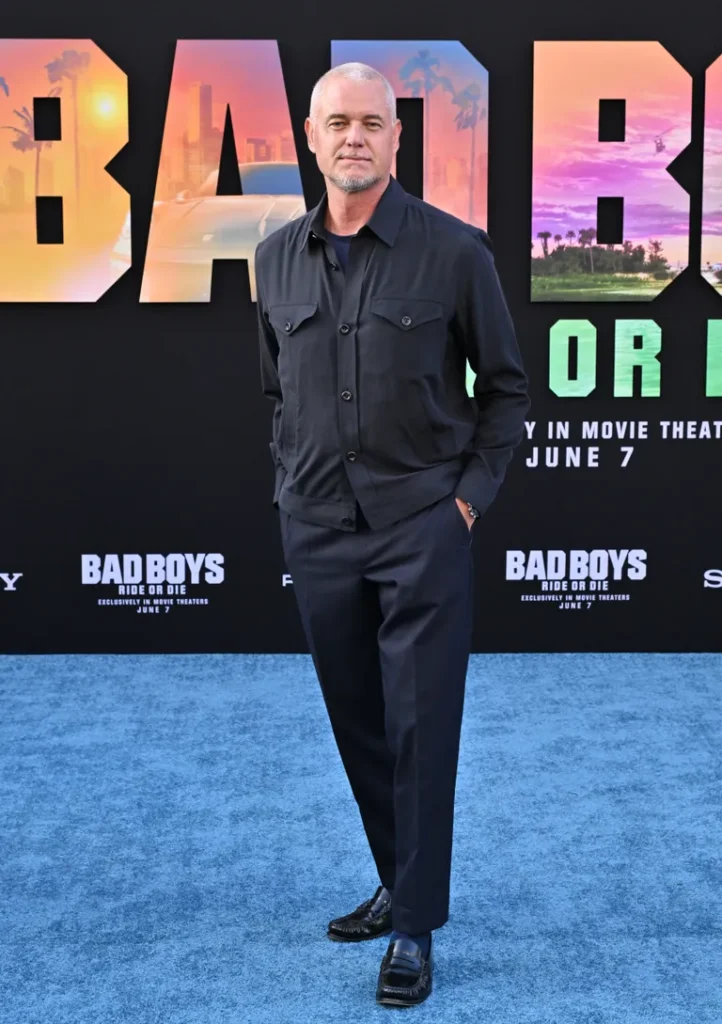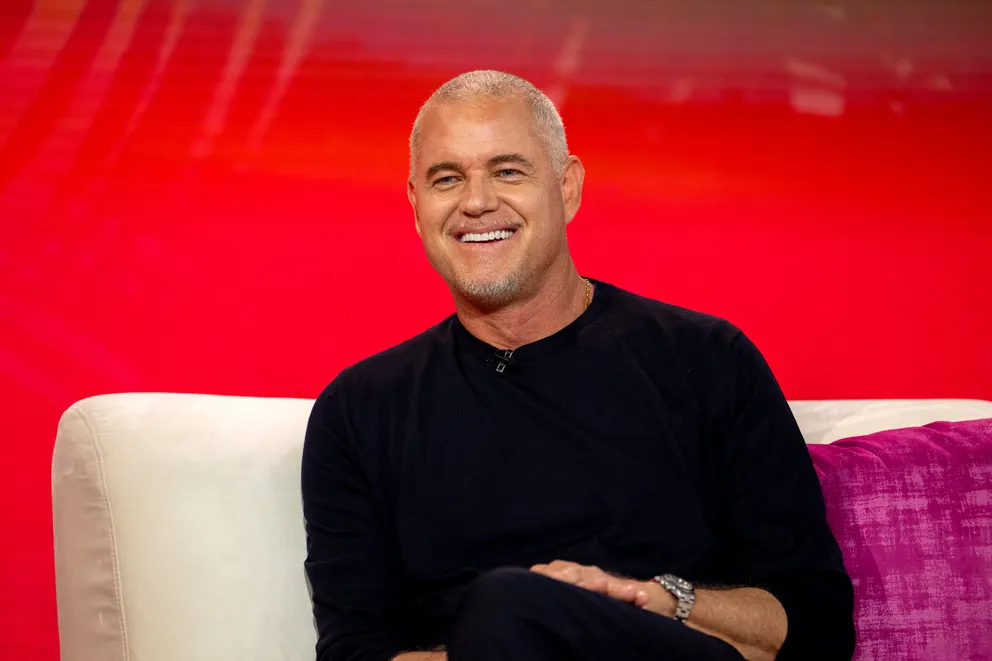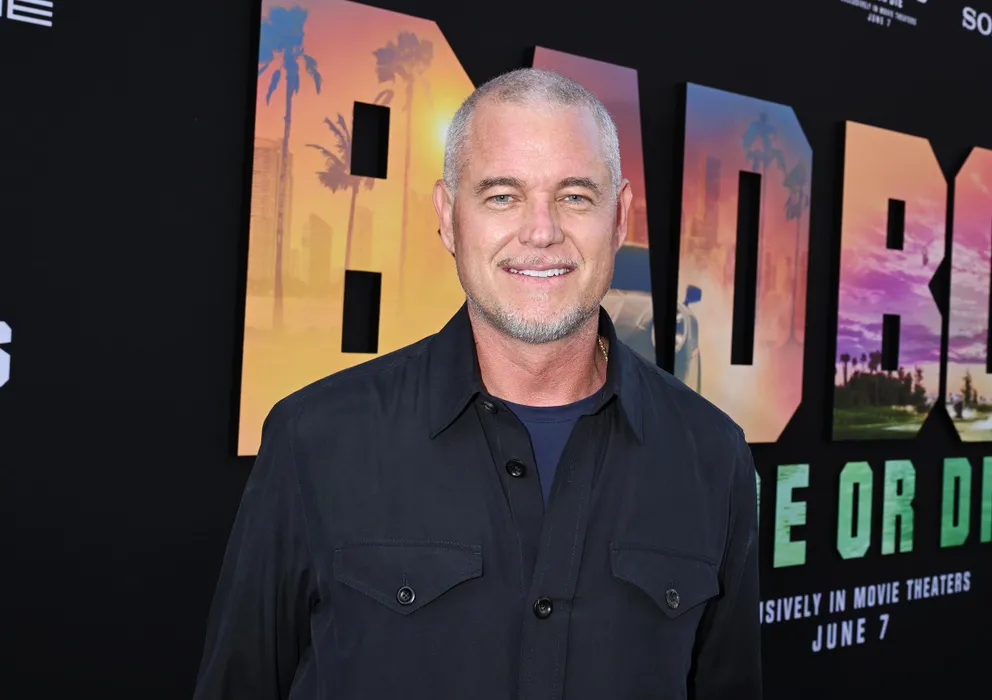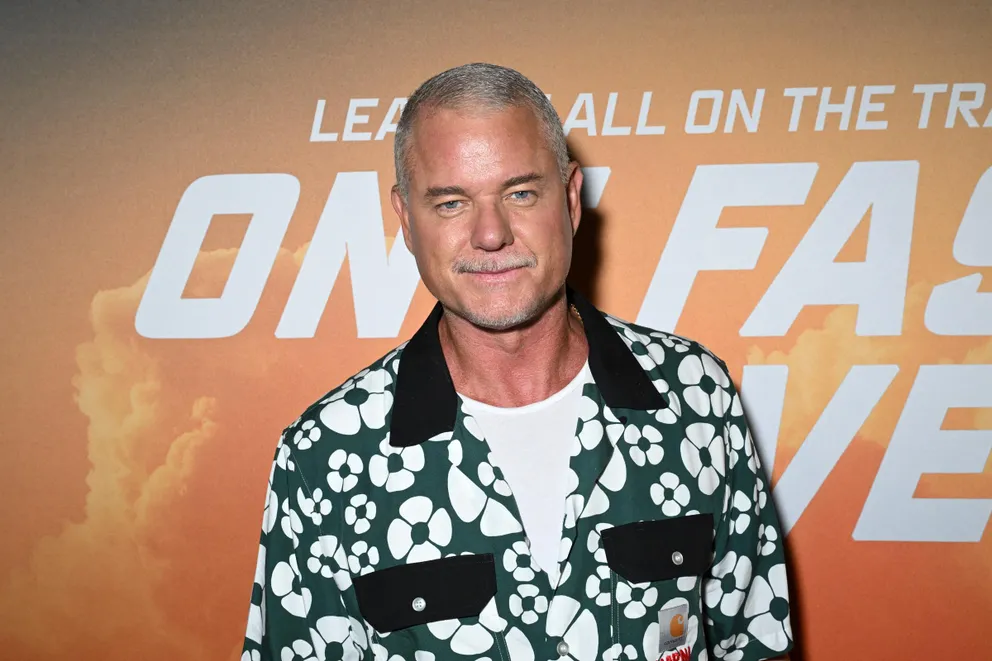
In a shocking turn of events, Michael Bolton’s family recently uncovered a startling health issue that has both deeply affected his loved ones and stunned his fans. The Grammy-winning musician, at 72, has been diagnosed with glioblastoma, an aggressive and rare form of brain cancer.
The revelation came from his daughter, Taryn Bolton, in an exclusive interview with People on April 30, 2025. According to Taryn, the first signs of something being wrong emerged just after Thanksgiving 2023, during what was supposed to be a fun family night out bowling.
Taryn described a troubling moment when her father started bowling out of turn — a behavior she noted as “super weird.” But the situation escalated when Michael suddenly fell from his chair earlier that evening. “He fell to the left, which was totally out of character for him. He’s extremely athletic and doesn’t drink, so it was really confusing,” she explained. “We all just looked at each other, wondering, ‘What just happened?’”
This unexpected incident ultimately led to the heartbreaking diagnosis that has left both Michael’s family and his fans in disbelief.

At first, Taryn and her sisters, Holly and Isa, chalked up their father’s troubling symptoms — including nausea and balance issues — to the exhaustion and stress of a demanding schedule. This was during a busy charity event in November 2023, and Michael was pushing through, staying professionally active with touring, filming a movie cameo, and promoting his latest album.
But when a severe headache struck that weekend, Michael knew he couldn’t ignore it any longer. A visit to the hospital led to an MRI, which revealed a brain tumor. Surgeons acted quickly, removing it entirely, but a week later, the pathology results delivered the devastating news: it was glioblastoma (GBM), an aggressive form of brain cancer.
Michael made the heart-wrenching news public in January 2024, sharing in a Facebook post that the tumor had been discovered just before the holiday season. As he focused on his recovery at home, he announced a temporary break from touring, expressing his gratitude to fans for their unwavering support during such a challenging time.

According to the Cleveland Clinic, glioblastoma (GBM) is the most common type of malignant brain tumor in adults. It’s notorious for being one of the most aggressive and rapidly progressing cancers, making it extremely difficult to treat. GBM grows at an alarming rate, invading healthy brain tissue, and, unfortunately, there is no known cure.
The symptoms are often distressing and can include persistent headaches, speech or memory problems, seizures, and noticeable changes in personality. While treatments like surgery, radiation, and chemotherapy can help extend survival and improve quality of life, the cancer is known for almost always returning, making it a relentless and heartbreaking condition.

Dr. Ingo Mellinghoff, a leading expert at Memorial Sloan Kettering, highlighted that glioblastomas can also cause coordination problems and subtle shifts in behavior. He stressed the importance of paying attention to even the most minor changes, as these tumors often present with signs that are easy to overlook.
“Speech is particularly sensitive,” Dr. Mellinghoff explained. “We all have our own speech patterns, and if someone suddenly says, ‘It sounds so strange, and it doesn’t make sense,’ that’s definitely something worth noting.” His advice serves as a reminder to stay vigilant and not dismiss seemingly small, but significant, changes.
After his diagnosis, Michael underwent a rigorous treatment plan, completing chemotherapy and radiation by October 2024. Given the aggressive nature of glioblastoma and its high likelihood of recurrence, Michael now undergoes MRI scans every two months to monitor his condition. His most recent scan in April 2025 brought a wave of relief, as it showed no signs of the tumor returning.
Fans across social media quickly rallied around Michael with an outpouring of love and support. “Could tell there was something wrong for a good while. Prayers,” one person wrote, reflecting the concern many had quietly felt. Another commented, “When he was on The Sherri Show, I knew something was up. He was not himself.”
Others shared more emotional responses. “Omg, this is so sad 🙏 What a beautiful family. God bless Michael—wishing you lots of courage and love,” one fan posted. Another described the diagnosis as “grueling,” sending heartfelt prayers to Michael and his loved ones during this deeply challenging time.

Amid the flood of reactions online, one fan was especially moved by seeing Michael still spending time with his children, sharing how his music had shaped their own youth. Another expressed heartfelt concern for his health, wishing him strength for the road ahead. A longtime supporter reflected on the lasting joy Michael’s songs had brought to so many and offered a simple but powerful message of thanks.
Others held tightly to hope. “Dear Michael, never give up! Praying for a miracle for you!” one follower wrote, while another added, “I just hope he recovers fully.” The wave of love and empathy from fans around the world deeply touched the Bolton family.
As support poured in, Michael and his family took time to reflect on how profoundly life had changed since his diagnosis. Taryn wasn’t the only one who had sensed something was wrong. Her sister Holly shared a moment that stood out vividly — just after Michael’s brain surgery on December 4, 2023. As he lay recovering, he suddenly began to sing. His voice, remarkably, was still strong and clear. A nurse nearby, unaware of who he was, turned and asked, “Does anyone know this man can sing like that?” For Holly and her sisters, it was an emotional moment of hope amid the uncertainty.
Though Isa has remained private, she’s been by her father’s side every step of the way. Together, the three sisters have helped create a sense of normalcy — leaning into shared laughter, embracing family traditions, and making new memories in Michael’s longtime home in Westport, Connecticut.
Michael, too, has spent time in quiet reflection. In his interview with People, he acknowledged how the treatments have affected him — from his speech and memory to his mobility. Still, he remains steadfast. “Succumbing to the challenge is not an option,” he said. “You’re really quickly drawn into a duel… that’s the way you find out what you’re made of.”
Since his diagnosis, Michael’s perspective has shifted. Rather than focusing on the demands of his career, he now centers his energy on what truly matters: leaving his daughters with love, strength, and life lessons they’ll carry forward. He’s also become more intentional about how he spends his time, asking himself whether each moment is meaningful — and how to make the most of it.
Despite everything he’s facing, Michael is far from giving up. He shared in a heartfelt Facebook post that revealing his diagnosis wasn’t easy, but he hoped it would offer comfort to others walking similar paths. He also expressed deep gratitude to People for handling his story with care — and to his fans for their unwavering encouragement.
“I’ve drawn strength from your encouragement,” he wrote, “and I continue to draw strength from it every day as I move forward on this journey.”

Michael Bolton isn’t alone in facing a life-changing diagnosis. Recently, actor Eric Dane—best known for his standout roles in Grey’s Anatomy and Euphoria—publicly shared his own health battle.
In a candid and heartfelt interview with People, Dane revealed that he has been diagnosed with amyotrophic lateral sclerosis (ALS), a progressive neurodegenerative disease. The announcement sent shockwaves through Hollywood and beyond, as fans and fellow actors rallied around the beloved star with messages of love, support, and admiration for his courage in going public.

“I have been diagnosed with ALS,” Eric Dane shared, his words marked by quiet strength and honesty. “I am grateful to have my loving family by my side as we navigate this next chapter.” At 52, Dane is confronting the disease with the unwavering support of his wife, actress Rebecca Gayheart, and their two daughters — 15-year-old Billie Beatrice and 13-year-old Georgia Geraldine.
For the family, the journey ahead is profoundly personal. Yet Eric is well aware that, as a public figure, his story carries weight far beyond his inner circle. And he’s not retreating from the spotlight. “I feel fortunate that I am able to continue working,” he said, revealing he’ll soon return to the set of Euphoria. His determination to keep doing what he loves — even in the face of adversity — has already begun to inspire fans around the world.

ALS, or amyotrophic lateral sclerosis, is a relentless and progressive neurological disorder that targets the body’s most vital functions. It attacks motor neurons — the nerve cells in the brain and spinal cord responsible for controlling voluntary muscle movement. These are the muscles we rely on for everyday actions: walking, talking, swallowing, and even breathing.
As ALS advances, these motor neurons gradually break down and die, severing the brain’s ability to communicate with the muscles. The result is a heartbreaking progression: muscle weakness, twitching, and eventually, severe atrophy. Over time, individuals with ALS lose the ability to move, speak, eat, and ultimately, breathe without assistance. Despite this devastating trajectory, many continue to face the disease with extraordinary resilience and dignity.

Though ALS progresses at different rates for each individual, it is an unrelenting disease. Most people diagnosed with ALS live between three to five years after the onset of symptoms. Only about 10% survive beyond a decade.
As of now, there is no cure. The U.S. Food and Drug Administration has approved a handful of medications that may slow the progression or help manage symptoms, but none can halt or reverse the disease entirely.
For Eric Dane, the diagnosis signals the start of a challenging journey — one filled with uncertainty and difficult choices. Yet amid the gravity of his health battle, a surprising and deeply personal development has brought a glimmer of hope.
In March, just one month before sharing his diagnosis, Eric’s wife, Rebecca Gayheart, filed to dismiss their long-standing divorce case. According to court documents obtained by People, the decision came seven years after she initially filed. On March 6, both Eric and Rebecca signed the paperwork to officially pause the process — a quiet but powerful sign of renewed unity as they face this next chapter together.

Eric and Rebecca’s story spans over two decades, marked by love, challenges, and resilience. The couple first met in 2003 and tied the knot the following year in a spontaneous Las Vegas ceremony. For years, they were seen as one of Hollywood’s quietly enduring couples.
But in 2018, their marriage hit a turning point. Rebecca filed for divorce, citing irreconcilable differences. She requested joint custody of their daughters and spousal support — a clear indication that while the marriage was ending, the commitment to family remained intact.
At the time, Eric and Rebecca released a joint statement: “After 14 years together, we have decided that ending our marriage is the best decision for our family… We will continue our friendship and work as a team to co-parent our two beautiful girls.”
Now, in the face of Eric’s diagnosis, that shared commitment appears stronger than ever — a testament to the enduring bond between them, even as life takes an unexpected and difficult turn.
Though their legal separation stretched on for years, the emotional connection between Eric and Rebecca never fully faded. Throughout that time, they continued to co-parent their daughters with mutual respect and an evident sense of teamwork. In 2019, the court even issued warnings about delays in finalizing the divorce, but neither seemed in a hurry to make the separation permanent.
Instead, they chose to prioritize family — leaning into shared experiences and creating memories together. In 2022, they traveled as a family to France. The following year, they vacationed in Cabo. And by December 2024, the family was once again spotted enjoying a beach getaway in Hawaii. Each trip quietly told a story: that despite the legal limbo, their bond was still very much alive.
Now, with the divorce officially on pause, it appears the couple is giving their relationship a second chance — at a time when love, support, and unity mean more than ever.
Long before his rise as Cal Jacobs on Euphoria, Eric Dane captured hearts as Dr. Mark Sloan — or “McSteamy” — on Grey’s Anatomy. His character radiated confidence and charisma, but behind the scenes, Eric was battling personal struggles that weren’t visible to viewers. His journey has been far more complex than the characters he’s portrayed — and now, facing ALS, it enters its most courageous chapter yet.

In a candid conversation on the Armchair Expert podcast, Eric Dane opened up about the real story behind his exit from Grey’s Anatomy — a moment that surprised fans and marked a turning point in his personal journey. “I didn’t leave so much as I was let go,” he admitted, linking his departure to a difficult and deeply personal battle with addiction.
Although Eric had been sober for about four years when he joined the hit medical drama in 2006, the pressures of fame and the intensity of Hollywood life led to a relapse. “Staying clean became a lot harder as the demands of celebrity life grew,” he reflected.
Still, he doesn’t believe addiction was the primary reason for his exit. “They didn’t let me go because of that, although it definitely didn’t help,” he said. Instead, Eric pointed to the economics of network television. As an actor’s tenure on a long-running show increases, so does their paycheck — sometimes to the point where networks reevaluate their value to the ensemble.
“They probably figured the show would be fine without me,” he said. “At the end of the day, all they really needed was Meredith Grey.”
His reflections reveal not just the reality of show business, but the quiet struggles that often unfold behind the scenes — battles that shaped the man behind “McSteamy” long before his latest, and most personal, fight began.

In the end, Eric Dane’s departure from Grey’s Anatomy wasn’t dramatic — it was quiet, almost unspoken. There was no formal dismissal, no headline-making fallout. Instead, it became clear through subtle signals that he simply wouldn’t be returning.
Despite the circumstances, Eric holds no resentment. In fact, he spoke with deep respect for showrunner Shonda Rhimes, crediting her for fiercely protecting the cast both on and off screen. “She always had our backs,” he said, acknowledging the complexities behind the scenes. Ultimately, he understood why things unfolded the way they did — a combination of timing, economics, and the evolving nature of television.
It was a graceful exit from a defining role — one that mirrored the quiet strength with which he now faces his greatest challenge yet.

For Eric, his time on Grey’s Anatomy became a turning point, not just in his career but in his personal life. His openness about addiction, the immense pressures of fame, and his ongoing transformation has since become a central part of his narrative — one that has paved the way for a new, yet uncertain, chapter.
This isn’t the first time Eric has faced a health scare. Back in 2008, during an industry strike, he found himself with rare free time and decided to visit a dermatologist after noticing what appeared to be chapped lips. The seemingly minor concern turned out to be much more serious. He later shared with OK! Magazine that the dermatologist diagnosed the spot as malignant tissue caused by years of sun exposure — a sobering reminder of how health issues can sometimes arise from unexpected places.
These experiences, marked by vulnerability and resilience, have shaped Eric’s journey in ways that go beyond the screen — preparing him for the challenges that lie ahead.

Eric, who grew up in California, reminisced about the countless hours he spent skiing and surfing under the sun — activities he loved, but ones that led him to overlook the importance of sun protection. It wasn’t until years later, during that fateful visit to the dermatologist, that he learned the full impact of those carefree days.
The dermatologist treated the suspicious area by using liquid nitrogen to burn off the malignancy. A follow-up cream was prescribed to eliminate any remaining abnormal cells, but the side effects were far more intense than he expected.
The treatment left his lips severely inflamed and painful, making it almost impossible to eat. The discomfort was so intense that Eric lost weight and endured a difficult recovery. Despite the suffering, he acknowledged that the temporary pain was a small price to pay in order to avoid more serious, long-term consequences.
Looking back, it was a stark reminder that some health challenges require tough, immediate action — and the lessons learned would carry him through the even greater battles to come.

However, not long after the story made headlines, Eric’s representatives stepped in to clear up any confusion. While confirming that Eric had malignant tissue removed, they emphasized to Access Hollywood that he did not have skin cancer. The cover story in OK! Magazine, they clarified, was a “misrepresentation” of the facts.
Now, facing the much graver challenge of ALS, Eric Dane once again finds himself confronted with a life-altering diagnosis. But, true to form, he approaches this new battle with the same openness, resilience, and quiet strength that have defined his journey. Like in past struggles, he faces the unknown with a courage born from experience — a reminder that, no matter the challenge, he knows how to endure.